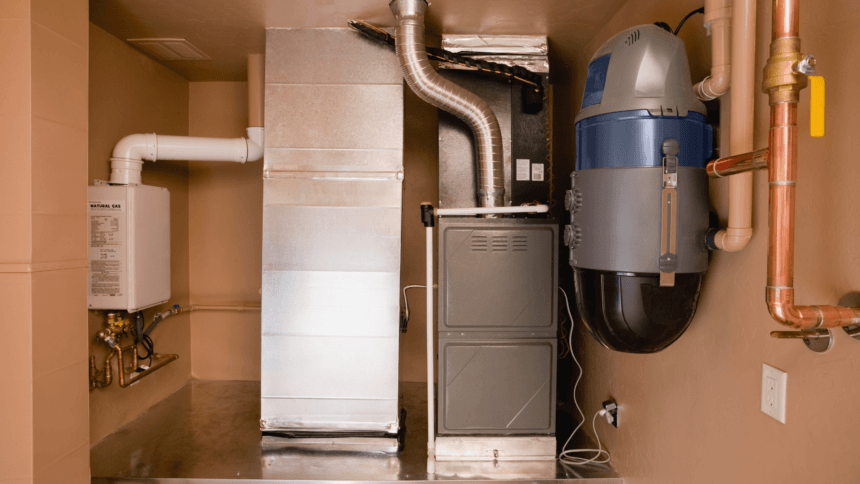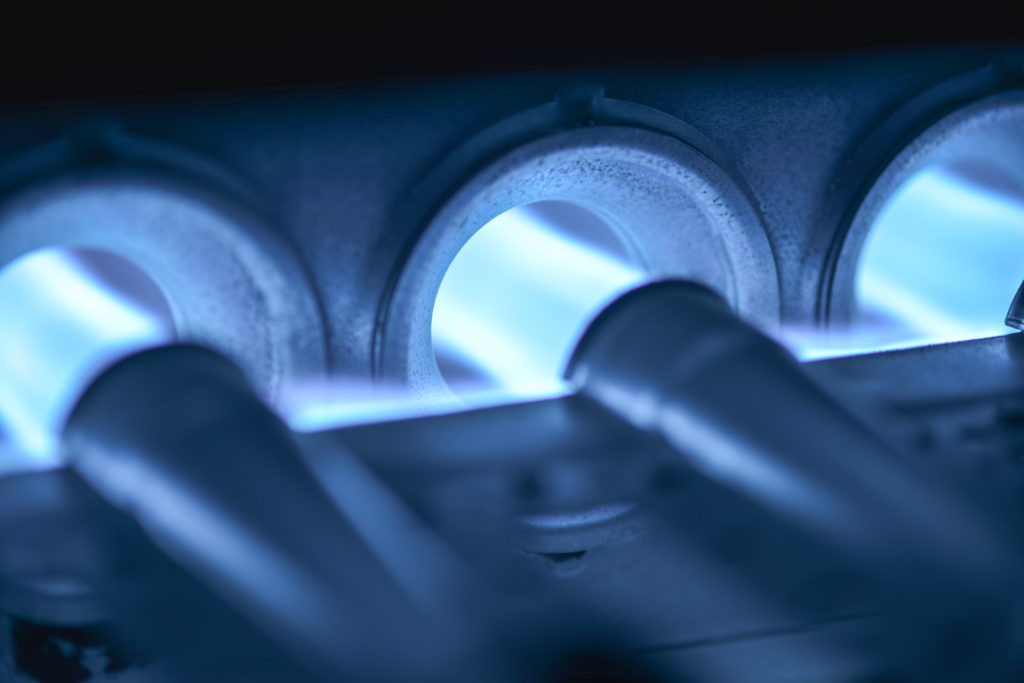What Are High-Efficiency Furnaces?

Energy costs continue to rise, making homeowners ever-conscious of ways to save energy around the home. Since heating and cooling use make up approximately half of the average home’s energy consumption, improving the efficiency of these systems is a change that will make a significant impact on your energy bills. High efficiency furnaces deliver reliable warmth and comfort with less energy use, saving you money on the comfort your family depends on throughout the winter.

What is a high efficiency furnace?
A furnace with an AFUE of 90% or higher is considered highly efficient. AFUE, or annual fuel utilization efficiency, is the measurement used to express a furnace’s fuel efficiency. A furnace’s efficiency rating is noted on the outside of the unit on the yellow EnergyGuide label required by the Federal Trade Commission (FTC). On this label, you’ll also see estimated operating costs for certain conditions to help you compare one furnace to the next.
Furnaces that are energy efficient are built using new technology and features that simply do not exist on older models. Advancements in heating technology allow these advanced units to create more heat from the gas or fuel they use, while only using the minimum amount of energy required to do their job.
Furnace features to consider
High efficiency furnaces are typically gas powered. The electric counterpart would be a heat pump, as heat pumps use electricity far more efficiently than an electric-powered furnace. Electric high efficiency furnaces do exist, but electricity costs are typically higher than gas.
Furnaces that are noted as highly efficient typically utilize common components and technology to deliver better energy efficiency over other models.
- Electronic Ignition: Older gas furnaces are started by gas-burning pilot lights. New high efficiency furnaces feature electronic ignition that is only utilized when the furnace is signaled to come on. This feature conserves energy over a constantly-burning pilot light.
- Two-Stage Heating: Two-stage heating allows high efficiency furnaces to operate with lower energy consumption when temperatures are mild. When temperatures are very cold, the higher stage works to keep your family warm, preventing discomfort.
- Second Heat Exchanger: High efficiency furnaces are also called condensing furnaces. They utilize a second heat exchanger to extract heat that would otherwise escape your system through vented exhaust gasses, gaining more heat from the energy consumed.
- Variable Speed Blower: A variable speed blower can operate at difference speeds based on the home’s current needs. It works at faster speeds when more airflow is needed, and switches to a lower speed when less will do.
- Sealed Combustion: Sealed combustion allows the furnace to draw in outside air for the combustion process, conserving energy and making the process safer for your family.
Shopping for the best furnace
High efficiency furnaces turn more of the money you’re spending on energy into heat compared to lower rated models. These furnaces are typically more expensive to install compared to lower efficiency models, but users make their money back in energy savings over shorter periods of time, depending on usage.
When shopping for a high efficiency furnace, compare features and efficiency ratings of the models you are considering. Obtain quotes from reputable HVAC contractors to learn the total cost of the furnace and its installation – several factors can affect installation costs, including ductwork installation or repair for improved efficiency.